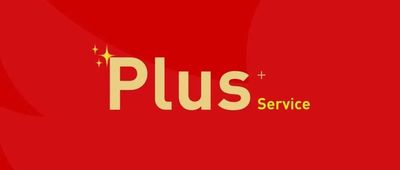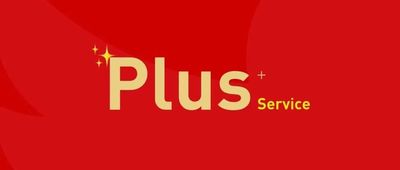Read each prompt properly before using.
Edit it and put in the ChatGPT
Prompts:
- "Please write a compelling [type of text] that speaks directly to my [ideal customer persona] and encourages them to take [desired action] on my [website/product]."
- "I need a [type of text] that will persuade [ideal customer persona] to purchase my [product/service] by highlighting its unique benefits and addressing any potential objections."
- "I'm looking for a [type of text] that will convince [ideal customer persona] to sign up for my [program/subscription] by explaining the value it brings and the benefits they'll receive."
- "I need a [type of text] that will make my [ideal customer persona] feel [emotion] about my [product/service] and convince them to take [desired action]."
- "I'm looking for a [type of text] that will explain the features and benefits of my [product/service] to [ideal customer persona] in a clear and concise manner, leading them to make a purchase."
- "I need a [type of text] that will address the pain points and needs of my [ideal customer persona] and show them how my [product/service] is the solution they've been searching for."
- "I'm looking for a [type of text] that will draw in my [ideal customer persona] with a strong headline and hook, and then convince them to take [desired action] with persuasive language and compelling evidence."
- "I need a [type of text] that will tell a story about my [product/service] and how it has helped [ideal customer persona] achieve their [goal] in a relatable and engaging way."
- "I'm looking for a [type of text] that will showcase the unique features and benefits of my [product/service] to [ideal customer persona] and persuade them to make a purchase."
- "I need a [type of text] that will overcome objections and concerns my [ideal customer persona] may have about my [product/service] and convince them to take [desired action]."
- "I'm looking for a [type of text] that will establish trust and credibility with my [ideal customer persona] by highlighting the successes and testimonials of previous customers who have used my [product/service]."
- "I need a [type of text] that will make my [ideal customer persona] feel [emotion] about my [product/service] and persuade them to take [desired action] with a sense of urgency."
- "I'm looking for a [type of text] that will clearly explain the features and benefits of my [product/service] to [ideal customer persona] and persuade them to make a purchase with a strong call-to-action."
- "I need a [type of text] that will showcase the value and benefits of my [product/service] to [ideal customer persona] and convince them to take [desired action] with social proof and credibility-building elements."
- "I'm looking for a [type of text] that will speak directly to the needs and pain points of my [ideal customer persona] and persuade them to take [desired action] with a sense of urgency and strong offer."
- What is the purpose of a copywriting strategy, and why is it important for businesses to have one?
- What are the key components of a copywriting strategy, and how do they work together to create effective copy?
- How do you conduct research and analysis to inform your copywriting strategy, and what factors should you consider?
- What are the characteristics of an ideal target audience, and how do you identify and understand them in the context of copywriting?
- How do you define your unique selling proposition (USP) and incorporate it into your copywriting strategy?
- What are the different stages of the customer journey, and how can you tailor your copywriting strategy to address each stage effectively?
- How do you create buyer personas to inform your copywriting strategy, and what information should you include in them?
- How do you differentiate your product or service from competitors in your copywriting, and what techniques can you use to do so?
- How do you use emotional appeals in your copywriting strategy to connect with readers and drive conversions?
- What are the key principles of effective storytelling in copywriting, and how can they be applied to various industries and niches?
- How do you craft headlines and subject lines that grab attention and entice readers to keep reading?
- What are some techniques for structuring copy in a way that is easy to read and visually appealing, such as using headings, subheadings, and bullet points?
- How do you use customer testimonials and social proof to build credibility and trust in your copywriting?
- What role does formatting play in copywriting, and what are some best practices for using typography, color, and images effectively?
- How do you optimize copy for search engines without sacrificing readability and persuasiveness?
- What are some common mistakes to avoid in copywriting, such as using jargon, being too salesy, or failing to proofread?
- How do you ensure that your copywriting reflects your brand voice and values, and is consistent across all channels and platforms?
- How do you set and measure goals for your copywriting, and what metrics should you track to evaluate success?
- What are some tips for writing compelling calls-to-action (CTAs) that encourage readers to take action?
- How can you use data and analytics to optimize your copywriting and improve results over time?
- What are some best practices for crafting effective email copy, such as subject lines, preheaders, and body content?
- How do you tailor your copywriting to different stages of the sales funnel, such as awareness, consideration, and decision?
- How do you adapt your copywriting strategy for different audiences, such as B2B, B2C, or niche markets?
- How do you incorporate keywords and phrases into your copywriting to improve search engine rankings and visibility?
- What are some strategies for creating content that is shareable and has the potential to go viral?
- What are some common mistakes that copywriters make when crafting headlines and subject lines, and how can they be avoided?
- What role do emotions and psychology play in writing effective headlines and subject lines?
- How important is it to use keywords in headlines and subject lines, and what are some best practices for doing so without sacrificing clarity or creativity?
- What are some effective strategies for writing attention-grabbing headlines and subject lines that are relevant to the content of the piece?
- How can copywriters use humor and wordplay to make headlines and subject lines more memorable and engaging?
- How can copywriters tailor their headlines and subject lines to different channels and platforms, such as social media, email marketing, and search engine results pages?
- What are some best practices for writing headlines and subject lines that are SEO-friendly without sacrificing readability or creativity?
- How can copywriters use statistics and numbers to make headlines and subject lines more compelling and credible?
- What are some effective strategies for using questions in headlines and subject lines to engage readers and pique their curiosity?
- How can copywriters use sensory words and vivid imagery to make headlines and subject lines more appealing to readers?
- What role do formatting and typography play in creating effective headlines and subject lines, and what are some best practices for using these elements to your advantage?
- How important is it to test different headlines and subject lines to see what works best, and what are some best practices for doing so?
- How can copywriters use personalization and segmentation to make headlines and subject lines more relevant and engaging to specific audiences?
- How can copywriters use storytelling and narrative techniques in their headlines and subject lines to create a sense of intrigue and emotional connection with readers?
- What are some effective strategies for using urgency and scarcity in headlines and subject lines to motivate readers to take action?
- How can copywriters use cultural references and trends to make headlines and subject lines more relatable and shareable?
- What are some best practices for writing headlines and subject lines that are concise and to-the-point, while still being compelling and engaging?
- How can copywriters use social proof and testimonials in headlines and subject lines to build credibility and trust with readers?
- How important is it to create a sense of exclusivity or insider knowledge in headlines and subject lines, and what are some effective strategies for doing so?
- What are some effective strategies for using contrast and comparison in headlines and subject lines to highlight the benefits of a product or service?
- How can copywriters use power words and action verbs to create a sense of urgency and excitement in headlines and subject lines?
- What role do cultural and societal trends play in creating effective headlines and subject lines, and how can copywriters leverage these trends to their advantage?
- How can copywriters use shock value or controversy in headlines and subject lines to grab readers' attention, while still being ethical and responsible?
- What are some best practices for writing headlines and subject lines that are inclusive and avoid stereotypes or offensive language?
- How can copywriters use A/B testing and other analytics to continuously refine and optimize their headlines and subject lines over time?
- What are some common misconceptions that beginner copywriters have about the profession, and how can they be corrected?
- How important is research in the copywriting process, and what are some tips for conducting effective research?
- What are some common mistakes that beginner copywriters make in understanding their target audience, and how can these mistakes be avoided?
- How do you avoid writing copy that is too salesy or pushy, and instead create copy that is engaging and persuasive?
- How do you write headlines that grab the reader's attention and encourage them to keep reading?
- What are some common grammar and punctuation mistakes that beginner copywriters make, and how can they be avoided?
- How do you avoid using jargon or technical language that can be confusing or alienating to the reader?
- What are some tips for writing copy that is easy to read and understand, such as using short sentences and paragraphs?
- How do you avoid using clichés or overused phrases that can make copywriting seem boring or unoriginal?
- What are some tips for using humor or other forms of entertainment in copywriting, and how can these be done effectively?
- How do you avoid making assumptions about the reader's preferences or experiences, and instead write copy that is relevant and relatable?
- What are some common mistakes that beginner copywriters make in creating calls to action, and how can these be avoided?
- How do you avoid creating copy that is too similar to the competition, and instead create copy that is unique and memorable?
- What are some tips for writing copy that is SEO-friendly, such as using keywords and meta descriptions?
- How do you avoid using hyperbole or making promises that cannot be kept in your copywriting?
- What are some common mistakes that beginner copywriters make in structuring their copy, and how can they be avoided?
- How do you avoid writing copy that is too long or wordy, and instead create copy that is concise and impactful?
- What are some tips for writing copy that is authentic and genuine, and avoids sounding insincere or fake?
- How do you avoid using too many adjectives or adverbs, and instead write copy that is simple and direct?
- What are some common mistakes that beginner copywriters make in proofreading and editing, and how can these be avoided?
- How do you avoid creating copy that is too generic or broad, and instead create copy that is targeted and specific?
- What are some tips for writing copy that is appropriate for different channels, such as social media, email, or print ads?
- How do you avoid creating copy that is too complicated or technical, and instead create copy that is accessible and easy to understand?
- What are some common mistakes that beginner copywriters make in understanding the client's goals and objectives, and how can these be avoided?
- How do you avoid getting discouraged or overwhelmed when starting out in copywriting, and instead maintain motivation and focus?
- What are some key elements that make copy compelling, and how can copywriters incorporate them into their writing?
- How important is understanding the target audience in creating compelling copy, and what are some tips for doing so effectively?
- What are some strategies for writing headlines that grab the reader's attention and draw them into the copy?
- How can copywriters use storytelling to create more engaging and compelling copy?
- How do you avoid writing copy that is too salesy or pushy, and instead create copy that is persuasive and engaging?
- What are some tips for writing copy that is clear and easy to understand, even for complex products or services?
- How can copywriters use emotional appeals to create more compelling copy, and what are some best practices for doing so?
- How important is creating a strong value proposition in creating compelling copy, and how can this be done effectively?
- What are some common mistakes that copywriters make in trying to write compelling copy, and how can these be avoided?
- How can copywriters use data and statistics to create more persuasive and compelling copy?
- What are some strategies for using humor or other forms of entertainment in copywriting, and how can these be done effectively?
- How can copywriters use customer testimonials or social proof to create more compelling copy?
- How important is creating a sense of urgency or scarcity in creating compelling copy, and what are some ways to do so effectively?
- How can copywriters use visual elements, such as images or videos, to create more engaging and compelling copy?
- What are some tips for writing copy that is tailored to specific channels, such as social media or email marketing?
- How can copywriters use tone and voice to create more compelling copy, and what are some best practices for doing so?
- What are some common mistakes that copywriters make in using language that is too complex or technical, and how can these be avoided?
- How can copywriters use sensory language to create more engaging and compelling copy?
- How important is creating a strong call-to-action in creating compelling copy, and what are some best practices for doing so?
- How can copywriters use personalization to create more compelling copy, and what are some best practices for doing so?
- How can copywriters use the power of association to create more persuasive and compelling copy?
- What are some tips for creating copy that is memorable and stands out from the competition?
- How can copywriters use the power of persuasion to create more compelling copy, and what are some best practices for doing so?
- How can copywriters use current events or trending topics to create more engaging and compelling copy?
- How important is testing and optimization in creating compelling copy, and what are some strategies for doing so effectively?
- What are some resources you rely on to stay informed about the latest copywriting trends and techniques?
- How often do you seek out new information on copywriting, and how do you prioritize what to learn next?
- What are some of the biggest changes you've seen in copywriting over the last few years, and how have you adapted to them?
- How important is it to stay on top of emerging technologies, and how do you incorporate new tech trends into your work?
- What are some online communities or groups you participate in to stay informed about the latest copywriting trends and techniques?
- How do you track your progress in learning new copywriting skills and techniques, and what metrics do you use to measure your success?
- What are some of the most common mistakes that copywriters make when trying to stay up-to-date with new trends and techniques?
- How do you balance the need to stay current with the desire to maintain a unique voice and style in your copywriting?
- How do you incorporate feedback and criticism from others when learning and experimenting with new copywriting techniques?
- How important is it to experiment with new techniques and strategies in your copywriting, and what are some best practices for doing so?
- What role do you think creativity and innovation play in copywriting, and how do you foster those qualities in your work?
- How do you adapt to changes in the target audience's preferences and behaviors, and how does this affect your copywriting strategies?
- What are some ways to stay on top of emerging social media and digital marketing trends, and how do you incorporate them into your copywriting strategies?
- How important is collaboration with other professionals, such as designers and marketers, in staying current with the latest copywriting trends and techniques?
- How do you balance the need for consistency in your copywriting with the desire to try new things and stay on top of emerging trends?
- What are some of the most significant challenges you've faced in staying up-to-date with new copywriting trends and techniques, and how have you overcome them?
- How do you identify emerging trends and techniques that are worth investing time and resources in learning, versus those that are more passing fads?
- What are some best practices for staying organized and managing your time effectively when trying to learn new copywriting skills and techniques?
- How do you leverage industry events and conferences to stay informed about the latest copywriting trends and techniques?
- What are some ways to stay motivated and engaged when learning new copywriting skills and techniques?
- How do you balance the need for continuous learning and growth with the need to focus on producing high-quality work for clients?
- What are some tools and resources you use to stay on top of the latest trends in SEO and other key digital marketing strategies?
- How do you incorporate user experience (UX) design principles into your copywriting, and what are some best practices for doing so?
- What are some ways to stay informed about emerging trends in content marketing, and how do you incorporate them into your copywriting strategies?
- How do you balance the need to stay informed about emerging trends with the need to maintain a focus on the core principles of effective copywriting, such as clarity and persuasive messaging?
- What is the role of storytelling in copywriting, and why is it important for businesses to incorporate it into their marketing strategy?
- How can storytelling be used to create an emotional connection between a brand and its customers?
- What are some common types of brand stories, such as origin stories, customer success stories, or employee stories, and how can they be used effectively in copywriting?
- How do you identify and define the key elements of a brand story, such as the protagonist, the conflict, and the resolution?
- How do you tailor your brand story to different audiences, such as potential customers, investors, or employees?
- What are some effective techniques for using descriptive language and sensory details to make a brand story more vivid and engaging?
- How do you create a brand story that is both authentic and compelling, and avoids cliches or stereotypes?
- What are some examples of brands that use storytelling effectively in their copywriting, and what can we learn from their success?
- How do you use storytelling to differentiate a brand from its competitors, and create a unique value proposition?
- What are some tips for incorporating storytelling into different types of copywriting, such as social media posts, blog articles, or email newsletters?
- How do you measure the effectiveness of storytelling in copywriting, and what metrics should you track to evaluate success?
- How can businesses use user-generated content or customer stories in their copywriting to build a sense of community and social proof?
- How do you use humor, irony, or other literary devices in your brand storytelling to create a memorable and distinctive voice?
- How do you use storytelling to address social or environmental issues, and position your brand as socially responsible or ethical?
- How do you create a narrative arc in your brand story, and use it to guide the reader's journey and emotional response?
- What are some common mistakes to avoid in using storytelling in copywriting, such as being too self-promotional or ignoring the audience's needs?
- How do you use data and analytics to refine your brand story, and adjust it to changing market conditions or customer preferences?
- How do you use storytelling to build a consistent and coherent brand narrative across all channels and touchpoints?
- What are some ethical considerations in using storytelling in copywriting, such as avoiding stereotypes or misrepresentations?
- How do you use storytelling to create a sense of urgency or immediacy in your copywriting, and motivate readers to take action?
- How can businesses use personal anecdotes in their copywriting to create a relatable brand story that resonates with customers?
- How can businesses use the hero's journey narrative structure in their copywriting to create a compelling brand story?
- Can you give me examples of how businesses have successfully used customer stories in their copywriting to build a strong brand narrative?
- How can businesses use the power of metaphors and analogies in their copywriting to help customers understand complex ideas and connect with the brand on a deeper level?
- How can businesses use emotional storytelling in their copywriting to create a more powerful connection with customers and build a strong brand identity?





